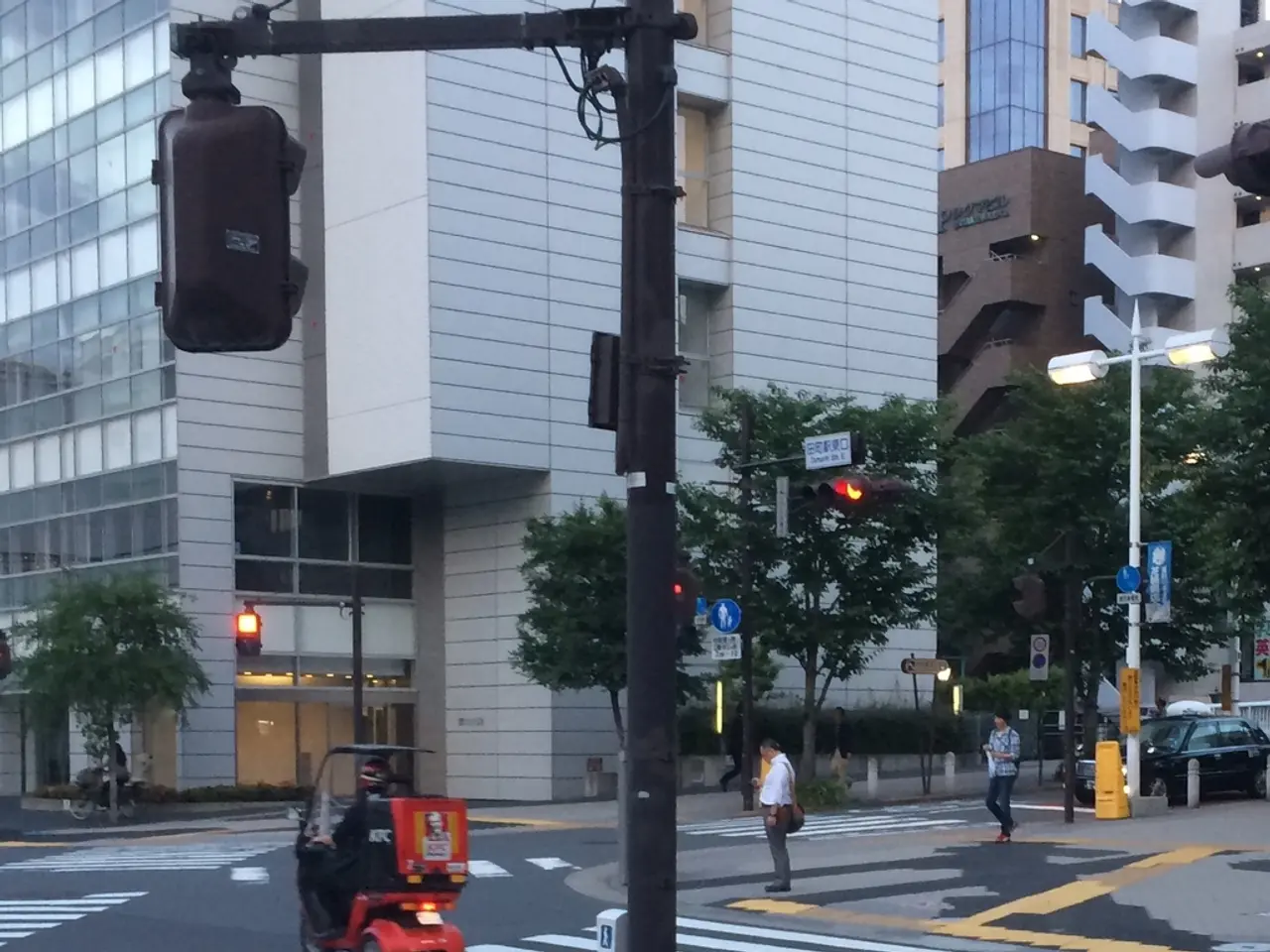Unchecked chaos needs to be addressed immediately
Electric scooters have become a popular mode of transport in cities across Germany, but their proliferation has also led to concerns about safety and nuisance. Last year, 27 lives were tragically lost while riding e-scooters, and nearly 12,000 people were injured in accidents involving these vehicles in 2024 - a quarter more than the previous year.
The issue isn't with private individuals using e-scooters for convenient trips, but with the mismanagement and irresponsible parking of rental scooters. These vehicles are commonly found blocking paths and parking in various spots, causing a nuisance in numerous cities.
The managers of e-scooter rental companies seem oblivious to the chaos their vehicles cause. However, the Federal Ministry of Transport is taking steps to address these issues. They are planning to establish rules for parking rental e-scooters, potentially requiring them to be parked at designated stations. The right technical solutions could enable the monitoring of rental e-scooter customers for improper parking, speeding, and driving under the influence.
Rental companies could potentially be held liable if their customers park improperly, speed, or drive under the influence. Technically, e-scooters can be tracked and controlled via GPS, preventing them from being parked just anywhere.
Safety regulations are also being discussed. Speed limits could be automatically enforced in sensitive areas like pedestrian zones to ensure safety. A helmet requirement could help protect e-scooter riders, but it's not currently being discussed as part of the rules.
E-scooter riders, often with passengers and under the influence of alcohol, speed and weave through pedestrian zones, bike lanes, and streets, posing a danger to others, particularly the elderly, visually impaired pedestrians, and those with disabilities.
Germany has experienced a significant rise in e-scooter accidents and fatalities between 2021 and 2023, which has intensified focus on safety measures for riders and pedestrians. Regulations include speed limits (often max 20 km/h), mandatory helmet use in some cases, and prohibitions on riding on sidewalks to protect pedestrians. Rental companies are also expected to ensure their scooters meet safety standards such as lighting and brakes.
In Berlin, citizens have proposed extensive car-free areas, which, if adopted, could indirectly encourage micro-mobility modes like e-scooters while combining restrictions on vehicle traffic and parking to enhance urban safety and environmental conditions.
Other cities, such as Helsinki, are piloting AI-based solutions and sensor technology with rental operators to improve safety through real-time monitoring of scooter usage, although this is not yet widely adopted in Germany.
Across Europe, including Germany, there is still no unified regulatory framework covering age limits, where scooters can be ridden, or operating standards for rental companies. This results in variability by city and necessitates local policies tailored to specific urban challenges.
In summary, German cities regulate electric scooter rental companies primarily through local safety rules restricting speed and riding zones, mandates for proper parking supported by geofencing technologies, and citizen-driven policies aimed at limiting car traffic and encouraging safe micro-mobility. Emerging AI-based safety monitoring pilots may influence future regulations. However, comprehensive nationwide uniform regulations specifically for electric scooter rentals remain under development.
[1] Berliner Morgenpost, "Berliner Bürger fordern vermehrt Car-free Zonen", 2021 [4] Deutsche Welle, "E-Scooter-Regelungen in Deutschland", 2022 [5] Citylab, "Helsinki's AI-Powered Scooter Pilot Is a Smart Approach to Urban Mobility", 2021
- E-scooters, deemed a popular mode of transport in urban settings like cities across Germany, have raised concerns about safety and nuisance, with 27 lives tragically lost and nearly 12,000 injuries reported in 2024.
- Safety issues stem from mismanaged and irresponsibly parked rental scooters blocking paths and parking in various spots, contributing to a nuisance in numerous cities.
- The Federal Ministry of Transport is taking steps to address these concerns, planning to establish rules for parking rental e-scooters and potentially requiring them to be parked at designated stations.
- To ensure compliance, technical solutions could monitor rental e-scooter customers for improper parking, speeding, or driving under the influence.
- Safety regulations are being discussed, including speed limits in sensitive areas, mandatory helmet use, and prohibitions on riding on sidewalks to protect pedestrians.
- Across Europe, including Germany, there is still a need for a unified regulatory framework covering age limits, riding zones, and operating standards for rental companies to create consistent safety measures.




